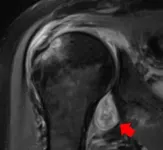(Press-News.org) More people than expected ended their own lives in 2020 in Japan, overturning a decadelong slow decline in the nation's annual number of suicides, according to a new analysis by public health experts at the University of Tokyo. The increase in suicides was especially pronounced among women younger than 30, potentially due to the COVID-19 pandemic's disproportionate effect on part-time and travel industry employees.
"This trend of increased suicides among young women and university and high school students is very different from before COVID-19. Before COVID-19, if suicides increased, we would expect more deaths of middle-aged men," said Dr. Haruka Sakamoto, an expert in public health at the University of Tokyo and first author of the research publication in the Journal of the American Medical Association (JAMA) Network Open.
The number of people who died by suicide in Japan peaked in 2003 with 34,427 total deaths, held relatively steady through 2009, and then slowly declined to 20,169 deaths in 2019, an all-time low since the government began compiling national suicide statistics in 1978.
In the late 2000s, suicides increased sharply among men in their 50s, many of whom were understood to be affected by the "Lehman shock" (the financial crisis following the bankruptcy of the Lehman Brothers company in 2008). Since then, depression and suicide in Japan have been widely viewed as diseases caused by overwork or work-related stress. In 2016, Japan's Basic Act on Suicide Prevention law required national and local governments to develop specific plans to reduce suicides.
"If they have a mental health problem, maybe they still feel some social shame, but now people know they can ask for rest from their employer," Sakamoto explained.
Sakamoto says that most suicide prevention policies are targeted to full-time employees of large companies. Anyone without a full-time job, especially young people who do not regularly visit medical clinics for physical health complaints, can be easily missed by current suicide prevention efforts.
In their recent analysis, Sakamoto and colleagues examined month-by-month differences in suicides from April to November of 2016-2019 versus April to November of 2020. This month-by-month analysis allowed researchers to account for the rapidly changing social conditions related to the pandemic.
Fewer suicides than expected occurred in April and May 2020 when Japan was under an official state of emergency.
"Our hypothesis to explain the decrease in suicides in April and May is that normally there is an increase in suicides because of people starting a new school year or a job change. The state of emergency delayed that normal time of change, so suicide rooted in school or working environment did not occur as usual," said Sakamoto.
The April-May decline in suicides is also expected based on the widely documented "pulling together phenomenon" in societies around the world as people support one another in the immediate aftermath of natural or national disasters. Eventually, this sense of community cohesion fades, the decline in suicides reverses to a brief spike, and then suicides return to their pre-disaster normal rate.
In July 2020, the number of women killing themselves in Japan started to increase, especially in those younger than 30, and remained higher than expected through November. Between 2016 to 2019, an average of 70 women under age 30 died by suicide each July, but 96 women did so in 2020. October was the deadliest month for women of all ages. An average of 486 total women took their own lives the previous four Octobers, but 826 total women did so in October 2020.
The total number of men taking their own lives did not rise significantly until October. An average of 1,096 men of all ages killed themselves each October from 2016 to 2019, but 1,246 total men did so in October 2020. Most of the increase was among men aged 30 to 49.
"If people feel the pandemic can finish soon, they can fight to maintain their business. But around October, globally we saw a resurgence of COVID-19, so maybe people felt like the situation will get worse soon in Japan too. Probably with this negative atmosphere in October, this is why there was such an increase in suicides that month," said Sakamoto.
Although the total number of suicides is higher in men, researchers say that the sudden and unexpected increase in younger women is especially concerning. Japan's current suicide prevention strategies are unlikely to catch this demographic, and the pandemic's effect on part-time, food service or restaurant workers, and tourism, travel and entertainment sector jobs -- where young women make up a significant portion of the workforce -- is unlikely to recover anytime soon.
"Now the government needs a new policy for women and university students added to the current overall suicide program," said Sakamoto.
The relationship between biology, external environments, depression and suicide have always been difficult for medical science to understand, but experts say the pandemic's environment of isolation, stress and general dread can create mental illness.
"Even now during COVID-19, not every part-time worker has a mental health problem and it is still very rare to kill yourself. Mental health problems are biological issues, but environment can strongly affect the biological part. Without COVID-19 pressures, I think most of these women who killed themselves in 2020 would not have had mental health problems," said Sakamoto.
Parts of Japan, including Tokyo and Osaka, re-entered a state of emergency at the start of January 2021. National suicide statistics are made rapidly available in Japan, so researchers are continuing to watch each month's data as it becomes available.
"No one knows when we can enjoy daily life again, so the pandemic's effects on mental health and suicide will not end soon," said Sakamoto.
INFORMATION:
If you or someone you know are having thoughts of suicide anywhere in the world, visit http://www.suicide.org/international-suicide-hotlines.html for a list of local resources.
In Japan, the Tokyo English Lifeline (TELL) provides free and anonymous English-language crisis counseling via phone at 03-5774-0992 or online at https://telljp.com/. For Japanese-language services, call 0570-064-556 for the nationwide Mental Health Telephone Counseling service. For a list of services in each prefecture, visit https://www.inochinodenwa.org/lifeline.php. Befrienders International has offices across Japan listed on their website https://www.befrienders.org/directory?country=Japan. In an emergency, call 119 for immediate assistance.
For best practice guidelines about reporting on suicide responsibly, visit the WHO suicide prevention page, read COVID-19 specific guidelines published in END
After seven years of intense research, a research group from Aarhus University has succeeded - through an interdisciplinary collaboration - in understanding why a very extended structure is important for an essential protein from the human immune system. The new results offer new opportunities for adjusting the activity of the immune system both up and down. Stimulation is interesting in relation to cancer treatment, while inhibition of the immune system is used in treatment of autoimmune diseases.
In our bloodstream and tissues, the complement system acts as one of the very first defense mechanisms against pathogenic organisms. When these are ...
People with asthma in the most deprived areas are 50% more likely to be admitted to hospital and to die from asthma compared with those in the least deprived areas, a new five-year study of over 100,000 people in Wales has revealed.
Those from more deprived backgrounds were also found to have a poor balance of essential asthma medications that help prevent asthma attacks.
The new research, published in the journal PLOS Medicine, was conducted by Swansea University's Wales Asthma Observatory in collaboration with Asthma UK Centre for Applied Research and Liverpool University, and found ...
SAN FRANCISCO, CA--February 16, 2021--In people with central nervous system (CNS) lymphoma, cancerous B cells--a type of white blood cell--accumulate to form tumors in the brain or spinal cord, often in close proximity to blood vessels. This disease is quite rare, but individuals who are affected have limited treatment options and often experience recurrence.
Previous research has linked the severity of CNS lymphoma to abnormal leaks in the blood-brain barrier, a protective system that allows some substances to pass from the bloodstream to the brain, while blocking others. However, the specific molecular details of this link have been murky.
Now, Gladstone researchers have ...
Tsukuba, Japan - It's tough out there in the sea, as the widespread loss of complex marine communities is testament to. Researchers from Japan have discovered that ocean acidification favors degraded turf algal systems over corals and other algae, thanks to the help of feedback loops.
In a study published this month in Communications Biology, researchers from the University of Tsukuba have revealed that ocean acidification and feedback loops stabilize degraded turf algal systems, limiting the recruitment of coral and other algae.
Oceans are undergoing widespread changes as a result of human activities. These changes take the form of regime shifts - major, sudden and persistent changes in ecosystem structure and function. An example is the replacement of coral reefs and kelp ...
An estimated 1.1 billion people were living with untreated vision impairment in 2020, but researchers say more than 90 per cent of vision loss could be prevented or treated with existing, highly cost-effective interventions.
Published today in The Lancet Global Health, a new commission report on global eye health calls for eye care to be included in mainstream health services and development policies. It argues that this is essential to achieve the WHO goal of Universal Health Coverage (UHC) and the 2030 United Nations Sustainable Development Goals (SDGs).
Written by 73 leading experts from 25 countries, including University of ...
FEBRUARY 15, 2021, NEW YORK - A Ludwig Cancer Research study has identified a novel mechanism by which a type of cancer immunotherapy known as CTLA-4 blockade can disable suppressive immune cells to aid the destruction of certain tumors. The tumors in question are relatively less reliant on burning sugar through a biochemical process known as glycolysis.
Researchers led by Taha Merghoub and Jedd Wolchok of the Ludwig Center at Memorial Sloan Kettering Cancer Center (MSK) and former postdoc Roberta Zappasodi--now at Weill Cornell Medicine--have discovered that in a mouse model of glycolysis-deficient tumors, CTLA-4 blockade does ...
Durham, NC- Can stem cells alleviate lymphedema, a chronic debilitating condition affecting up to one in three women treated for breast cancer? Results of a phase I clinical trial released today in STEM CELLS Translational Medicine (SCTM) show there is a strong possibility that the answer is yes.
Lymphedema is swelling due to a build-up of fluid in lymph nodes - vessels that help rid the body of toxins, waste, and other unwanted materials- usually occurring in an arm or leg. While it can be the result of an inherited condition, its most common cause in the Western world is the removal of or damage to the lymph nodes during the course of cancer ...
CHICAGO --- Muscle soreness and achy joints are common symptoms among COVID-19 patients. But for some people, symptoms are more severe, long lasting and even bizarre, including rheumatoid arthritis flares, autoimmune myositis or "COVID toes."
A new Northwestern Medicine study has, for the first time, confirmed and illustrated the causes of these symptoms through radiological imaging.
"We've realized that the COVID virus can trigger the body to attack itself in different ways, which may lead to rheumatological issues that require lifelong management," said corresponding author Dr. Swati Deshmukh.
The paper will be published Feb. 17 in the journal Skeletal Radiology. The study is a retrospective review of data from patients who presented to Northwestern Memorial Hospital between ...
A woman's body shape--not only the amount of fat--is what drives stigma associated with overweight and obesity.
Fat stigma is a socially acceptable form of prejudice that contributes to poor medical outcomes and negatively affects educational and economic opportunities. But a new study has found that not all overweight and obese body shapes are equally stigmatized. Scientists from Arizona State University and Oklahoma State University have shown that women with abdominal fat around their midsection are more stigmatized than those with gluteofemoral fat on the hips, buttocks and thighs. The work will be published on February 17 in Social Psychology and Personality Science.
"Fat stigma is pervasive, painful and results ...
To provoke more interest and excitement for students and lecturers alike, a professor from Florida Atlantic University's College of Engineering and Computer Science is spicing up the study of complex differential mathematical equations using relevant history of algebra. In a paper published in the Journal of Humanistic Mathematics, Isaac Elishakoff, Ph.D., provides a refreshing perspective and a special "shout out" to Stephen Colbert, comedian and host of CBS's The Late Show with Stephen Colbert. His motivation? Colbert previously referred to mathematical equations as ...







